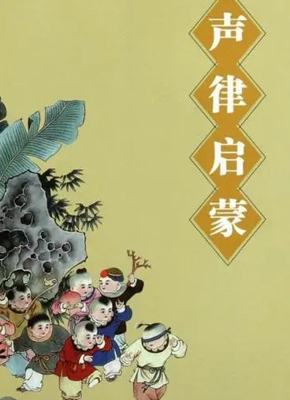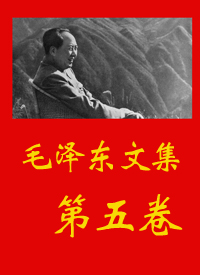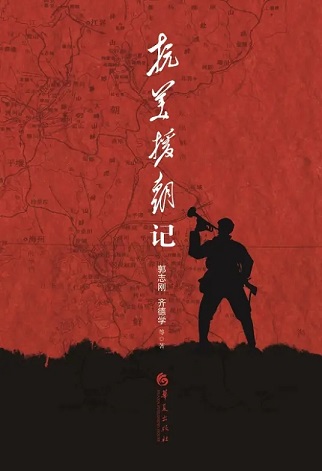The conclusion of Marius' classical studies coincided with M. Gillenormand's departure from society. The old man bade farewell to the Faubourg Saint-Germain and to Madame de T.'s salon, and established himself in the Mardis, in his house of the Rue des Filles-du-Calvaire. There he had for servants, in addition to the porter, that chambermaid, Nicolette, who had succeeded to Magnon, and that short-breathed and pursy Basque, who have been mentioned above.
In 1827, Marius had just attained his seventeenth year. One evening, on his return home, he saw his grandfather holding a letter in his hand.
"Marius," said M. Gillenormand, "you will set out for Vernon to-morrow."
"Why?" said Marius.
"To see your father."
Marius was seized with a trembling fit. He had thought of everything except this--that he should one day be called upon to see his father. Nothing could be more unexpected, more surprising, and, let us admit it, more disagreeable to him. It was forcing estrangement into reconciliation. It was not an affliction, but it was an unpleasant duty.
Marius, in addition to his motives of political antipathy, was convinced that his father, the slasher, as M. Gillenormand called him on his amiable days, did not love him; this was evident, since he had abandoned him to others. Feeling that he was not beloved, he did not love. "Nothing is more simple," he said to himself.
He was so astounded that he did not question M. Gillenormand. The grandfather resumed:--
"It appears that he is ill. He demands your presence."
And after a pause, he added:--
"Set out to-morrow morning. I think there is a coach which leaves the Cour des Fontaines at six o'clock, and which arrives in the evening. Take it. He says that here is haste."
Then he crushed the letter in his hand and thrust it into his pocket. Marius might have set out that very evening and have been with his father on the following morning. A diligence from the Rue du Bouloi took the trip to Rouen by night at that date, and passed through Vernon. Neither Marius nor M.Gillenormand thought of making inquiries about it.
The next day, at twilight, Marius reached Vernon. People were just beginning to light their candles. He asked the first person whom be met for "M. Pontmercy's house." For in his own mind, he agreed with the Restoration, and like it, did not recognize his father's claim to the title of either colonel or baron.
The house was pointed out to him. He rang; a woman with a little lamp in her hand opened the door.
"M. Pontmercy?" said Marius.
The woman remained motionless.
"Is this his house?" demanded Marius.
The woman nodded affirmatively.
"Can I speak with him?"
The woman shook her head.
"But I am his son!" persisted Marius. "He is expecting me."
"He no longer expects you," said the woman.
Then he perceived that she was weeping.
She pointed to the door of a room on the ground-floor; he entered.
In that room, which was lighted by a tallow candle standing on the chimney-piece, there were three men, one standing erect, another kneeling, and one lying at full length, on the floor in his shirt. The one on the floor was the colonel.
The other two were the doctor, and the priest, who was engaged in prayer.
The colonel had been attacked by brain fever three days previously. As he had a foreboding of evil at the very beginning of his illness, he had written to M. Gillenormand to demand his son. The malady had grown worse. On the very evening of Marius' arrival at Vernon, the colonel had had an attack of delirium; he had risen from his bed, in spite of the servant's efforts to prevent him, crying: "My son is not coming! I shall go to meet him!" Then he ran out of his room and fell prostrate on the floor of the antechamber. He had just expired.
The doctor had been summoned, and the cure. The doctor had arrived too late. The son had also arrived too late.
By the dim light of the candle, a large tear could be distinguished on the pale and prostrate colonel's cheek, where it had trickled from his dead eye. The eye was extinguished, but the tear was not yet dry. That tear was his son's delay.
Marius gazed upon that man whom he beheld for the first time, on that venerable and manly face, on those open eyes which saw not, on those white locks, those robust limbs, on which, here and there, brown lines, marking sword-thrusts, and a sort of red stars, which indicated bullet-holes, were visible. He contemplated that gigantic sear which stamped heroism on that countenance upon which God had imprinted goodness. He reflected that this man was his father, and that this man was dead, and a chill ran over him.
The sorrow which he felt was the sorrow which he would have felt in the presence of any other man whom he had chanced to behold stretched out in death.
Anguish, poignant anguish, was in that chamber. The servant-woman was lamenting in a corner, the cure was praying, and his sobs were audible, the doctor was wiping his eyes; the corpse itself was weeping.
The doctor, the priest, and the woman gazed at Marius in the midst of their affliction without uttering a word; he was the stranger there. Marius, who was far too little affected, felt ashamed and embarrassed at his own attitude; he held his hat in his hand; and he dropped it on the floor, in order to produce the impression that grief had deprived him of the strength to hold it.
At the same time, he experienced remorse, and he despised himself for behaving in this manner. But was it his fault? He did not love his father? Why should he!
The colonel had left nothing. The sale of big furniture barely paid the expenses of his burial.
The servant found a scrap of paper, which she handed to Marius. It contained the following, in the colonel's handwriting:--
"For my son.--The Emperor made me a Baron on the battle-field of Waterloo. Since the Restoration disputes my right to this title which I purchased with my blood, my son shall take it and bear it. That he will be worthy of it is a matter of course." Below, the colonel had added: "At that same battle of Waterloo, a sergeant saved my life. The man's name was Thenardier. I think that he has recently been keeping a little inn, in a village in the neighborhood of Paris, at Chelles or Montfermeil. If my son meets him, he will do all the good he can to Thenardier."
Marius took this paper and preserved it, not out of duty to his father, but because of that vague respect for death which is always imperious in the heart of man.
Nothing remained of the colonel. M. Gillenormand had his sword and uniform sold to an old-clothes dealer. The neighbors devastated the garden and pillaged the rare flowers. The other plants turned to nettles and weeds, and died.
Marius remained only forty-eight hours at Vernon. After the interment he returned to Paris, and applied himself again to his law studies, with no more thought of his father than if the latter had never lived. In two days the colonel was buried, and in three forgotten.
Marius wore crape on his hat. That was all.
马吕斯读完他的古典学科恰好是在吉诺曼退出交际社会的时候。老头儿辞别了圣日耳曼郊区和T.夫人的客厅,迁到沼泽区,定居在受难修女街他自己的宅子里。他的用人,除门房以外,还有那个接替马依名叫妮珂莱特的女仆和我们在前面谈到过的那个气促喘急的巴斯克佬。
一八二七年,马吕斯刚满十七岁。一天傍晚,他回到家里,看见外祖父手里捏着一封信。
“马吕斯,”吉诺曼先生说,“你明天得到韦尔农去一趟。”
“去干什么?”马吕斯说。
“去看你父亲。”
马吕斯颤了一下。他什么全想到过,却没有料到他有要去看父亲的一天。任何事都不会那样使他感到突兀奇特,而且,应当指出,那样使他不自在。一向疏远惯了的,现在却突然非去亲近不可。那不是一种苦恼,不是,而是一桩苦差事。
马吕斯除了政治方面的反感以外,也还有其他的动机,他一向确切认为他的父亲,那个刀斧手棗吉诺曼先生在心平气和的日子里是那样称呼他的棗从不爱他,那是明摆着的,否则他不会那样丢了他不管,交给旁人。他既然感到没有人爱他,他对人也就没有爱。再简单没有,他心想。
他当时惊骇到竟想不出什么来问吉诺曼先生。他外祖父接着又说:
“据说他在害病。他要你去看他。”
停了一会,他又说:
“你明天早上走。我记得,喷泉院子好象有辆车,早晨六点开,晚上到。你就乘那辆车好了。他说要去就得赶快。”
接着,他把那封信捏作一团,往衣袋里一塞。马吕斯本可当晚起程,第二天一早到他父亲身旁的。当时布洛亚街有辆夜间出发去鲁昂的公共马车,经过韦尔农。可是吉诺曼先生和马吕斯,谁都没有想到去打听一下。
第二天,夜色苍茫中马吕斯到了韦尔农。各家的烛光正一一燃起。他随便找个过路人问彭眉胥先生的住处。因为在他的思想里他是和王党同一见解的,他也并不承认他父亲是什么男爵或上校。
那人把一所住屋指给他看。他拉动门铃,有个妇人拿着一盏小油灯,走来开了门。
“彭眉胥先生住这儿?”马吕斯说。
那妇人立着不动。
“是这儿吗?”马吕斯问。
那妇人点点头。
“我可以和他谈谈吗?”
那妇人摇摇头。
“我是他的儿子,”马吕斯接着说,“他等着我呢。”
“他不等你了。”那妇人说。
他这才看出她正淌着眼泪。
她伸手指着一扇矮厅的门。他走了进去。
在那厅里的壁炉上燃着一支羊脂烛,照着三个男人,一个立着,一个跪着,一个倒在地上,穿件衬衫,直挺挺躺在方砖地上。躺在地上的那个便是上校。
另外那两个人,一个是医生,一个是神甫,神甫正在祈祷。
上校害了三天的大脑炎。刚得病时,他已感到吉少凶多,便写了封信给吉诺曼先生,去接他的儿子。病一天比一天沉重。马吕斯到达韦尔农的那个傍晚,上校的神志已开始昏迷了,他推开他的女仆,从床上爬起来,大声喊道:“我儿子不来!我要去找他去!”接着他走出自己的卧室,倒在前房的方砖地上。他刚刚才断气。
早有人去找医生和神甫。医生来得太迟了,神甫来得太迟了。他儿子也一样,来得太迟了。
从那朦胧的烛光中,可以看到在躺着不动、颜色惨白的上校的脸上,有一大颗从那死了的眼里流出的泪珠。眼睛已失去神采,泪珠却还没有干。那是哭他儿子迟迟不到的眼泪。
马吕斯望着他生平第一次,也是最末一次会面的那个人,望着那张雄赳赳令人敬慕的脸,那双睁着而不望人的眼睛,那一头白发,强壮的肢体,肢体上满是黝褐色的条痕,那都是些刀伤,满是红色的星星,那都是些弹孔。他望着那道又长又阔的刀痕给那张生来慈祥的脸添上一层英勇的气概。他想到这个人便是他的父亲,而这个人已经死了。他一动不动,漠然立着。
他所感到的凄凉,也只是他在看见任何其他一个死人躺在他面前时所能感到的那种凄凉。
屋子里的人个个在悲伤,悲伤到不能自已。用人在屋角里痛哭,神甫在抽抽噎噎地念着祈祷,医生在揩着眼泪,死者也在掉泪。
医生、神甫和那妇人从悲痛中望着马吕斯,谁都不说一句话,惟有他,才是外人。马吕斯,无动于衷,只感到自己的样子有些尴尬,不知道如何是好,他的帽子原是捏在手里的,他让它掉到地上,借以表明自己已哀痛到没有力气拿住帽子了。
同时他又感到有些后悔,觉得自己那种行为可耻。不过,这能说是他的过错吗?他不爱他的父亲,还有什么可说的!
上校什么也没有留下来。变卖家具的钱几乎不够付丧葬费。那用人找到一张破纸,交了给马吕斯。那上面有上校亲笔写的这样几句话:
吾儿览:皇上在滑铁卢战场上曾封我为男爵。王朝复辟,否认我这用鲜血换来的勋位,吾儿应仍承袭享受这勋位。不用说,他是当之无愧的。
在那后面,上校还加了这样几句话:
就在那次滑铁卢战役中,有个中士救了我的命。那人叫德纳第。多年以来,我仿佛记得他是在巴黎附近的一个村子里,谢尔或是孟费郿,开着一家小客店。吾儿如有机会遇着德纳第,望尽力报答他。
马吕斯拿了那张纸,紧紧捏在手里,那并不是出自他对父亲的孝心,而是出自对一般死者的那种泛泛的敬意,那种敬意在大家的心里总是那么有威力。
上校身后毫无遗物。吉诺曼先生派人把他的一把剑和一身军服卖给了旧货贩子。左右邻居窃取了花园,劫掠了那些稀有的花木。其他的植物都变成了荆棘丛莽,或者枯死了。
马吕斯在韦尔农只停留了四十八小时。安葬以后,他便回到巴黎,继续学他的法律,从不追念他的父亲,仿佛世上从不曾有过那样一个人似的。上校在两天以内入了土,三天以内便被遗忘了。
马吕斯在帽子上缠了一条黑纱,仅如此而已。







